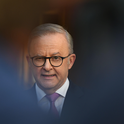The harassment of BBC reporters in Belarus a few days ago was part of a pattern. During last year’s protests in Iran, family members of BBC Persian staff were called in for questioning, had their passports confiscated and were told that they should tell their relatives to stop working for the BBC or face the consequences. In Mugabe’s Zimbabwe, the BBC was banned from working in the country. Autocrats loathe the BBC for its editorial independence of government and its frank reporting—the same reasons why more and more of their citizens are tuning in. BBC Persia now reaches 11m people.
Those qualities too are what makes the BBC one of the United Kingdom’s major assets at a time of upheaval in the world’s economic and geo-political order, when “Global Britain” is going to need to use every scrap of soft power it can marshal to maintain our influence and advance our interests. This of all times is not the moment to dump a globally recognised and respected brand.
Domestically too, the BBC’s reputation remains enviably high. A YouGov survey in April this year found that 47 per cent of people trusted BBC news journalists to tell them the truth, a lower level than for doctors, teachers or judges but quite a lot higher than for newspaper journalists or politicians. Interestingly, Conservative as well as Labour voters trusted the BBC more than other sources of news.
That does not however mean that the BBC can afford to be complacent. The digital revolution has transformed broadcasting. Satellite and cable TV; the internet and the integration of TV, radio and home computer systems; the rise of streaming services like Netflix and Amazon Prime; and the ability of viewers and listeners to access programmes on smartphones and tablets, not just TV sets and radios have altered public habits, expectations and attitudes. The challenge for the BBC is to maintain its reputation for independence, quality and impartiality in a vastly different and still changing technological, economic and political environment from that which existed at the beginning of this century.
As a Conservative who wants the BBC to thrive, I wish Tim Davie, the new Director General, well and hope that he tackles three challenges in particular.
First, he should stop the avoidable own goals which just annoy people whom the BBC wants on its side. I’m relieved that the row over the Last Night of the Proms has been sensibly resolved, but the whole furore was both predictable and unnecessary. I hope too that the reports are true that the new DG intends to insist even more strictly on political impartiality in the personal social media accounts of BBC staff. I’m not in the camp of those who believe that Auntie keeps a red flag under her pillow, but at a time when political debate, especially on social media, has too often become both intemperate and polarised, it is surely more important than ever for the BBC to protect its reputation for impartiality among its audiences both at home and globally. Government ministers are still expected to observe collective responsibility when they post on their Twitter or Facebook accounts; the same principle should apply firmly to editors and reporters working in BBC news and current affairs.
Second, the BBC needs to define its mission. The Reithian trinity of information, education and entertainment are time-honoured and still today as pithy a summary as yet written of what public service broadcasting exists to do. But where do the limits lie? It is in the nature of markets to innovate and experiment. Commercial providers will invent further new ways to deliver audio-visual content to customers. Is it the BBC’s duty to try to do everything that the commercial sector does? How should the corporation balance its commitment to be a universal service, measuring its success in part by ratings, against the risks of diluting public service content and a finite budget becoming unsustainably stretched?
Third, I think that the BBC has to seek to lead and shape the debate which, like it or not, is happening, about how in the UK we should pay for public service broadcasting. Is the model of a licence fee, charged originally on people who owned TV and radio sets, still suitable for a world of streaming and podcasts, where hand-held devices are increasingly used both by BBC viewers and those who never watch the BBC?
There are no simple, easy answers. Millions of people are now used to paying for services by subscription, but that model has major flaws. Short of dismantling Freeview (and I wouldn’t want to be an MP dealing with constituents on that one) it won’t actually work for the BBC’s TV output. Nor would it work for radio. And under a subscription model, how should we support uneconomic content that is of major social or cultural value? You could have a direct grant from the government, but that would risk blurring the broadcaster’s independence from the state.
Perhaps one way forward would be a hybrid approach: a licence fee coupled with a subscription revenue stream from the BBC’s archive of old programmes.
Above all, whatever approach is taken needs to protect for the long term the BBC’s independence and reputation for quality. A successful, trusted BBC is an asset for the whole country.
I want the BBC to thrive. Here are three challenges for Tim Davie
The national broadcaster is one of the UK’s greatest assets. How can it remain so?
September 04, 2020

BBC Broadcasting House. Photo: Aaron Chown/PA Archive/PA Images











